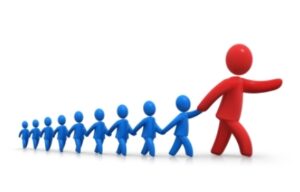PREAMBLE
No human being despite the state of his or her being is useless. Such a person can only be rendered useless if his or her right is deprived. People with intellectual disability also have their roles to play in societal reformation. What is most important is that they should be given their rights and employed into the activities of national development.
In line of this, this paper will discuss the following synopsis;
- Concept of intellectual disability
- Categories of people with intellectual disability
- Concept of national development
- National Development objectives
- Challenges facing people with intellectual disability in the society
- Conclusion
CONCEPT OF INTELLECTUAL DISABILITY
Attempting the definition of intellectual disability may be bit challenging. However, we still have scholars’ submission on this. Crawford (2011) submitted that there is no single definition of intellectual disability or commonly agreed upon prevalence estimate. The definition adopted by the American Association on Intellectual and Developmental Disabilities (AAIDD) (2011), and which the American government and advocacy groups in the United States also use, is as follows:
Intellectual disability characterised by significant limitations both in intellectual functioning and in adaptive behaviour which cover many everyday social and practical skills. This disability originates before the age of 18.
In support of this, Arc (2011) also stated that intellectual disability is a disability that occurs before age 18. People with this disability experience significant limitations in two main areas:
- Intellectual functioning and
- adaptive behavior
These limitations are expressed in the person’s conceptual, social and practical everyday living skills. A number of people with intellectual disability are mildly affected, making the disability difficult to recognize without visual cues.
webMd Magazine (2016), also attempt to explain what intellectual disability mean: “intellectual disability once called mental disability, is characterized by below-average intelligence or mental ability and a lack of skills necessary for day-to-day living. People with intellectual disability can and do learn new skills, but they learn them more slowly.
The point made by webMd Magazine make it clear that people with intellectual disability are not absolutely useless, they can and do learn new skills but the disability aspect of it is that they learn them more slowly.
As stated in medical-dictionary, intellectual disability is a developmental disability the first appears in children under the age of 18. It is defined as an intellectual functioning level (as measured by standard tests for intelligence quotient) that is well below average and significant limitations in daily living skills (adaptive functioning).
Also, citing from psychologytoday.com (2016), intellectual disability is a condition diagnosed before age of 18, usually in infancy or prior to birth, that includes below-average general intellectual function, and a lack of the skills necessary for daily living. When onset occurs at the age of 18 or after, it is called dementia, which can coexist with intellectual disability. Intelligence level as determined by individual standard assessment is below 70, and the ability to adapt to the demands of normal life is impaired. This is important because it distinguishes a diagnosis of intellectual disability from individuals with low IQ scores who are able to adapt to the demands of everyday life. Education, job training, support from family, and individual characteristics such as motivation and personality can all contribute to the ability of individuals with intellectual disability to adapt.
This fact established that people with intellectual disability can adapt with societal standard if they gain support from people. Also, they have the ability to execute job they do once they have a support.
Finally, most of those who are intellectually retarded are either born with it or develop it before them are of 18. This shows that most of them are not the intended causative agents; society, family, and lack of health care are likely reasons for this disability.
CATEGORIES OF CHILDREN WITH INTELLECTUAL DISABILITY
Medical-dictionary stated the categories of those who are intellectually or mental retarded thus:
- Mild Mental Disability: Approximately 85% of the mentally retarded population is in the mildly category. Their IQ score ranges from 50-75 50-75, and they can often acquire academic skills up to the 6th grade level. They can become fairly self-sufficient and in some cases live independently, with community and social support.
- Moderate Mental Disability: About 10% of the mentally retarded population is considered moderately retarded category. Their IQ scores ranging from 35-55. They can carry out work and self-care tasks with moderate supervision. They typically acquire communication skills in childhood and are able to live and unction successfully within the community in a supervised environment such as a group home.
- Severe Mental Disability: About 3-4% of the mentally retarded population is severely retarded. Severely retarded individuals have IQ scores of 20-40. They may master very basic self-care skills and some communication skills. Many severely retarded individuals are able to live in a group home.
- Profound /mentally Retarded: Only 1-2% of the mentally retarded population is classified as a profoundly retarded. Profoundly retarded individuals have IQ scores under 20-25. They may be able to develop basic self-care and communication skills with appropriate support and training. Their disability is often caused by an accompanying neurological disorder. The profoundly retarded need a high level of structure and supervision.
Noting from the details given on intellectual disability by medical dictionary, it is certain that no category of people with intellectual disability cannot learn new skills. The least among them only need supervision.
CONCEPT OF NATIONAL DEVELOPMENT
National, according to Longman dictionary of contemporary English, refers to a phenomenon that embraces a whole nation. National development therefore can be described as the overall development or a collective socio economic, political as well as religious advancement of a country or nation. This is best achieved through development planning, which can be described as the country’s collection of strategies mapped out by the government.
Reference.com stated that Federal governments draw up national development plans and policies based on the perceived needs of their citizens. Many include an emphasis on reducing poverty, affordable and available housing and community development.
The goal of all national development is to improve the lives of the citizens in question within the context of a growing economy and an emphasis on the good of the community as a whole.
NATIONAL DEVELOPMENT OBJECTIVES
The development process must be visualised in its broadest context if it is to meet the expectations of the citizenry for a more elevated standard of living. Accordingly, the most all-encompassing goal of development is the progressive realisation of the abilities and talents of each individual for his/her own satisfaction and enhancement of the good of the community and the nation.
This overall concept and goal is adopted as the principal guiding orientation of the National Development Strategy. Fulfilment of the following broad national objectives has been established as a precondition for the achievement of that broad goal:
- a) Rapid growth of incomes of the population in general.
- b) Poverty alleviation/reduction (rapid growth of the incomes of the poor).
- c) Satisfaction of basic social and economic needs.
- d) Sustainable of a democratic and fully participatory society.
Given the still-lagging state of our economy, substantial increases in incomes, in the sense of purchasing power, will be essential to permit our citizens to realise their talents and aspirations. For this reason, including intellectual people to the race of national development will be highly essential
CHALLENGES FACING PEOPLE WITH INTELLECTUAL DISABILITY IN THE SOCIETY
Individuals living with intellectual disabilities face both personal and external challenges in life. A child with an intellectual disability may learn to sit up, crawl, walk, and talk later than other children. Individuals with intellectual disabilities may experience difficulty learning social rules, deficits in memory, difficulty with problem solving, and delays in adaptive behaviors (such as self-help or self-care skills). They may also lack social inhibitors. Everyday tasks that most people take for granted, such as getting dressed or eating a meal, may be possible, but they may also take more time and effort than usual. Health and safety can also be a concern; for example, knowing whether it is safe to cross a street could pose a problem for someone with an intellectual disability. The exact combination of challenges varies from one person to another, but it typically involves limitations in both intellectual and daily functioning.
Society itself also poses challenges. People with intellectual disabilities are often discriminated against and devalued by society. This has improved over the twentieth and twenty-first centuries, but many individuals with disabilities still face being stigmatized in everyday life. Person-centered planning seeks to address this problem by encouraging a focus on the person with intellectual disabilities as someone with capacities and gifts as well as support needs. The self-advocacy movement promotes the right of individuals with intellectual disabilities to make decisions about their own lives.
CONCLUSION
National Development focuses on making life easy for all citizenry. People with intellectual disability are also members of the society. They should not be given societal deprivation. They should also be considered as useful elements of the society, as a result, they should be given the total right and privilege of participating in national development. They too can play a pivotal roles in sustaining our nation.
REFERENCES
– Boundless (2016) “Intellectual Disabilities and Boundless Psychology” https://www.boundless.com/psychology/textbooks/boundless-psychology
- https://www.reference.com/government-politics/national-development-7dbd75858a839b17
- Tolu Lawal and Abe Oluwatoyin (2011) “National development in Nigeria: Issues, challenges and prospects” academia.edu




